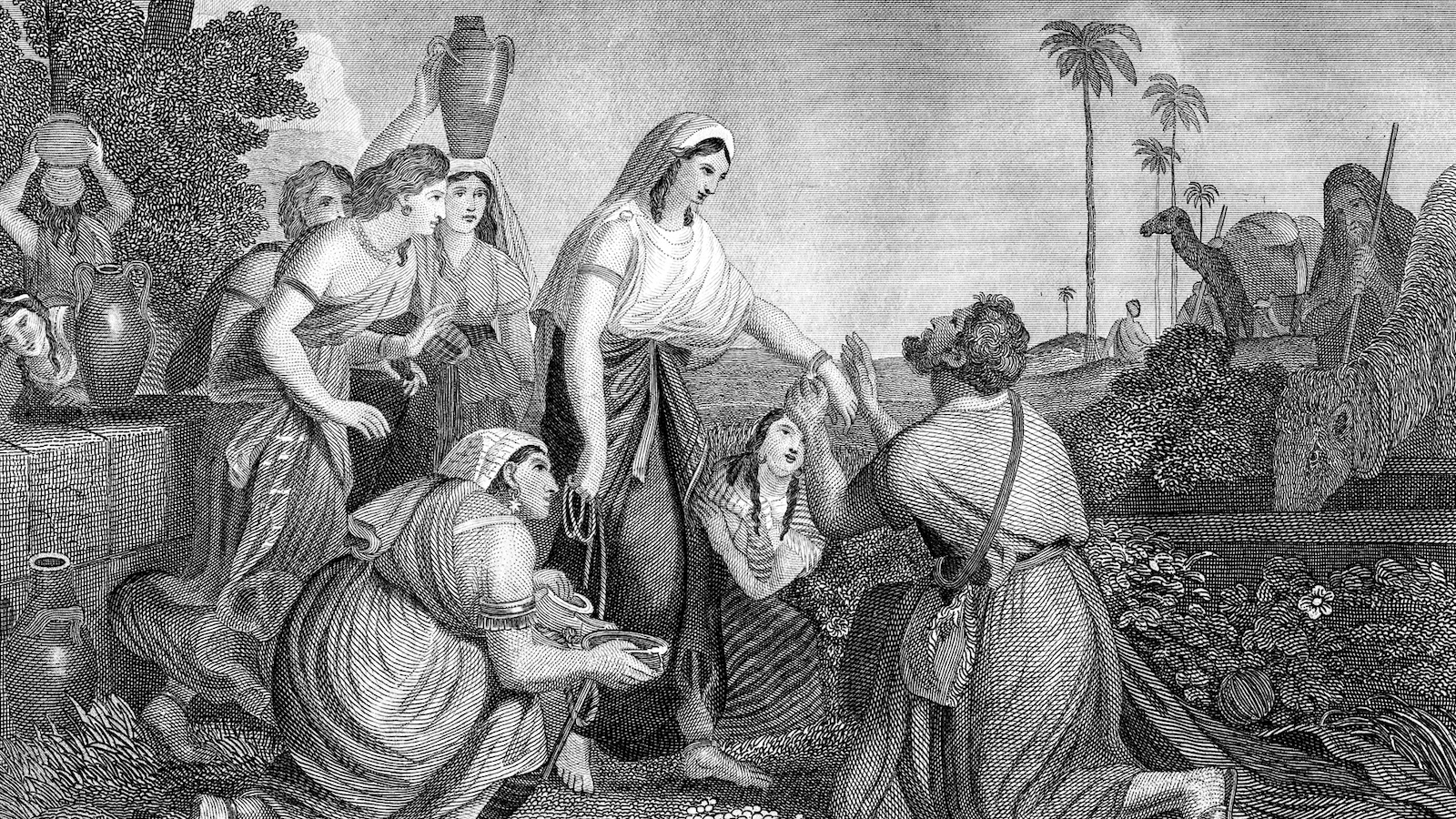Commentary on Parashat Chayei Sara, Genesis 23:1-25:18
This week’s Torah portion tells us of three significant events: the death of Sarah, the finding of a wife for Abraham’s son Isaac, and the death of Abraham. Each of these events is deserving of study and comment: We are taught how Abraham deals with the burial of his beloved wife and how he prepares for his own death.
The Torah tells us: “Abraham breathed his last and died well up in years, old and satisfied.” Abraham was able to die content, knowing that he had made arrangements for Isaac, and that he had “tied up loose ends” by making peace with his other son, Ishmael, and Ishmael’s mother, Hagar.
Seeking a Wife for Isaac
The section of this week’s portion that I want to analyze speaks about Abraham, and how even as he is grief-stricken by the loss of Sarah, he is determined to find a suitable wife for his Isaac. He gives this responsibility to his most loyal servant, Eliezer, assuring him that God will guide him in finding Isaac’s wife-to-be.
And so Eliezer, determined not to choose just any woman to be the wife of Isaac, asked God for a sign that would indicate when the right woman had appeared. Eliezer took 10 of Abraham’s camels and went to the town of Haran. He planned to wait by a well, where the women of the town would come to draw water. Eliezer would ask for water for only himself and not the camels. But the woman worthy of becoming Isaac’s wife would – of her own accord – also ask about giving water to the camels.
With your help, My Jewish Learning can provide endless opportunities for learning, connection and discovery.
Thus, we see that Eliezer was first and foremost looking for a woman of outstanding character, a woman of great kindness and sensitivity. Eliezer was not interested in finding a wealthy girl for Isaac nor did he make great beauty one of the criteria. He was determined to find a woman with a big heart, fitting to be the matriarch of Israel.
Rebecca’s Character
Rebecca came to the well and Eliezer asked for water for himself. Rebecca was pleased to help, and various commentators emphasize her expressions of ultimate kindness. According to the Midrash, Rebecca was even kind enough to lower the jug to Eliezer’s mouth so he would not need to expend any effort to drink.
Furthermore, after giving Eliezer water, Rebecca, without being asked and without asking, went to draw water for the camels. Rabbi Moshe Feinstein, a renowned halachic scholar (scholar of Jewish law), explained that Rebecca was so kind that it was second nature for her to take care of other’s needs. It was obvious to her that the camels needed water and she saw no need to discuss it.
The commentary states that ten camels would consume at least 140 gallons of water. This would be a very strenuous undertaking for Rebekah–made more remarkable by the way she chose to do this task.
The Theme of Kindness
The Kedushat Levi suggests that Rebecca consciously chose not to give water to the camels one by one, for she would not want to choose which one to give first and cause the others to wait. Rather, Rebekah chose to keep running to the well, drawing water, and pouring the water into the trough, so that all the camels could drink at once. Physically, this was a much more demanding way to provide water for the camels.
These acts of supreme kindness, acts of giving more than was asked of her, were enough to satisfy Eliezer that God had intervened and showed him Isaac’s future bride and the mother of the People of Israel.
The word chesed, which means kindness, is repeated throughout this portion. Abraham is known for his great kindness. It was this characteristic that he valued most and wanted passed on in his family.
I would hope that on this Shabbat, we would rededicate ourselves to “acts of kindness” toward our family, friends, strangers, and especially each other. Let’s practice “random acts of kindness,” without being asked and by expecting nothing in return. It will make a difference.
Reprinted with permission from the UJA-Federation of New York.
Moshe
Pronounced: moe-SHEH, Origin: Hebrew, Moses, whom God chooses to lead the Jews out of Egypt.
Torah
Pronunced: TORE-uh, Origin: Hebrew, the Five Books of Moses.



